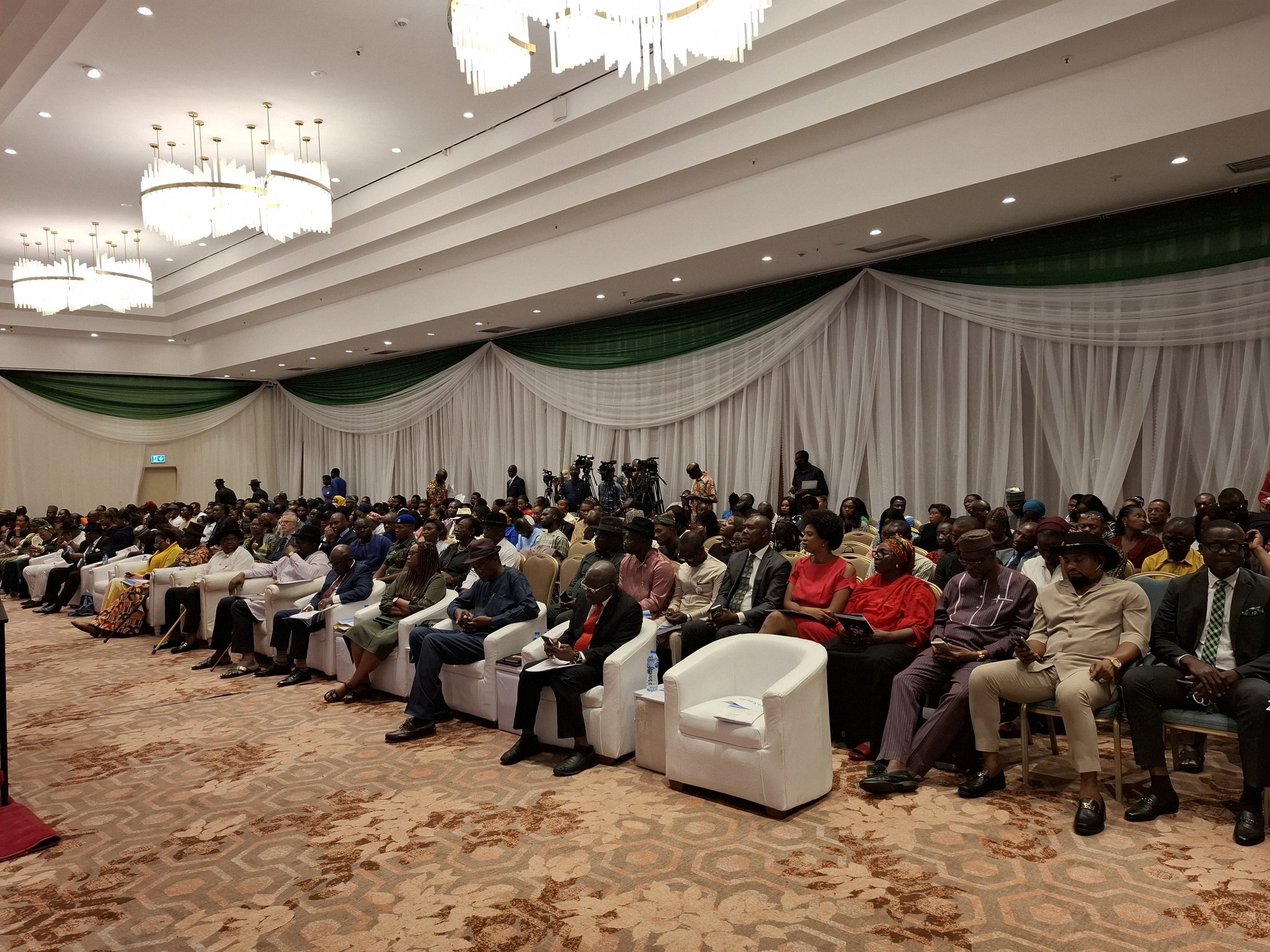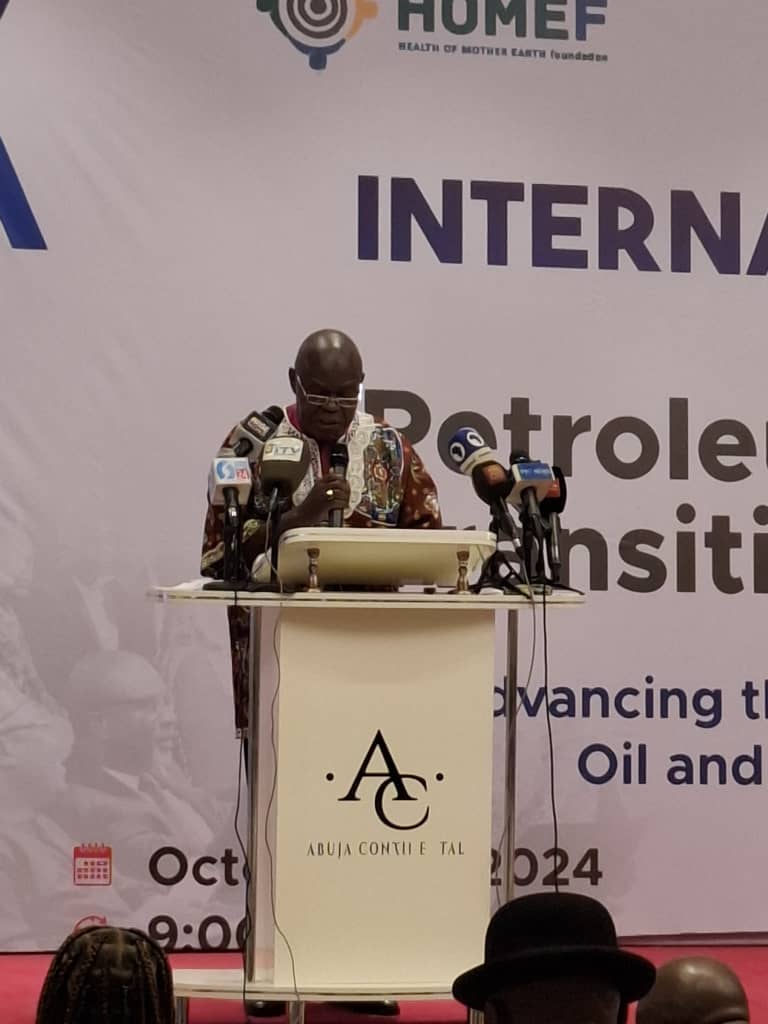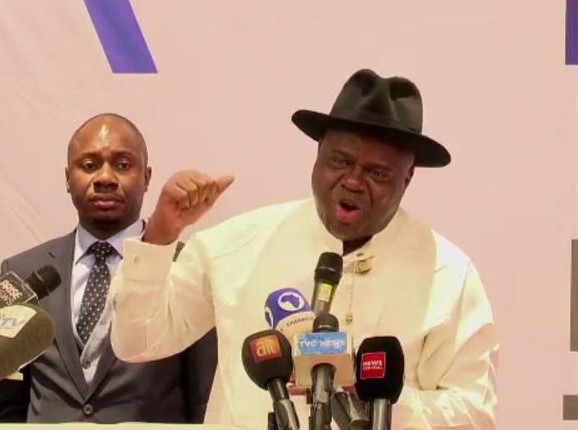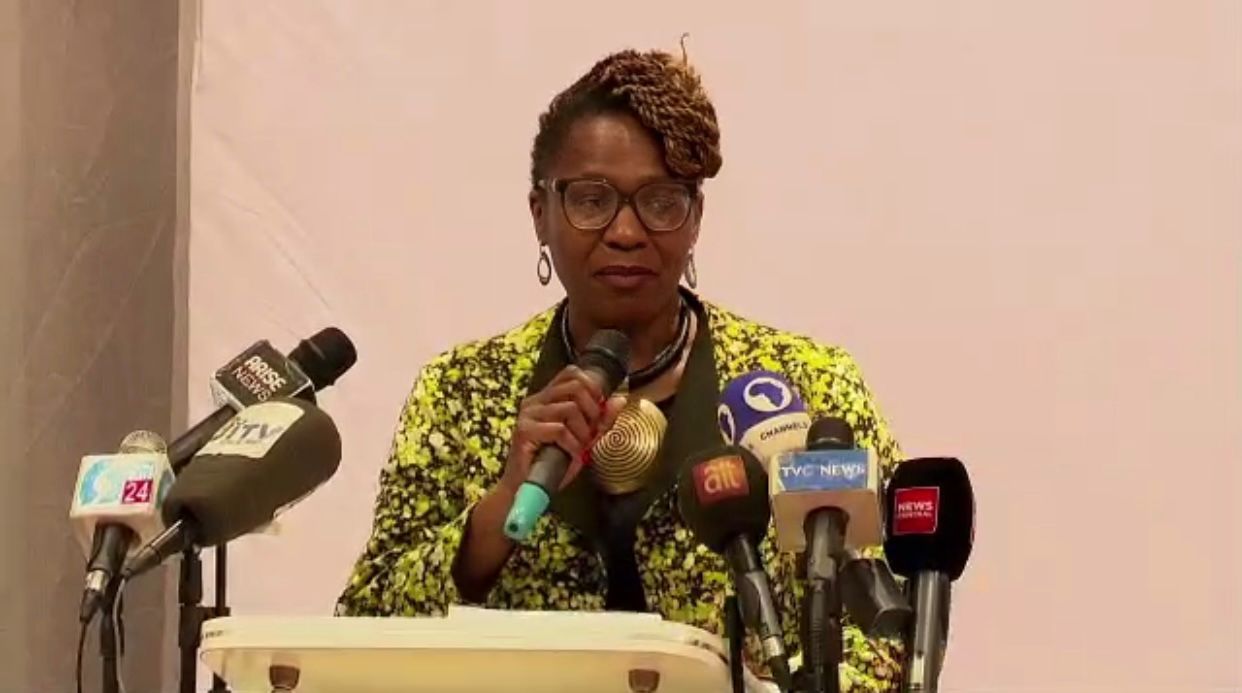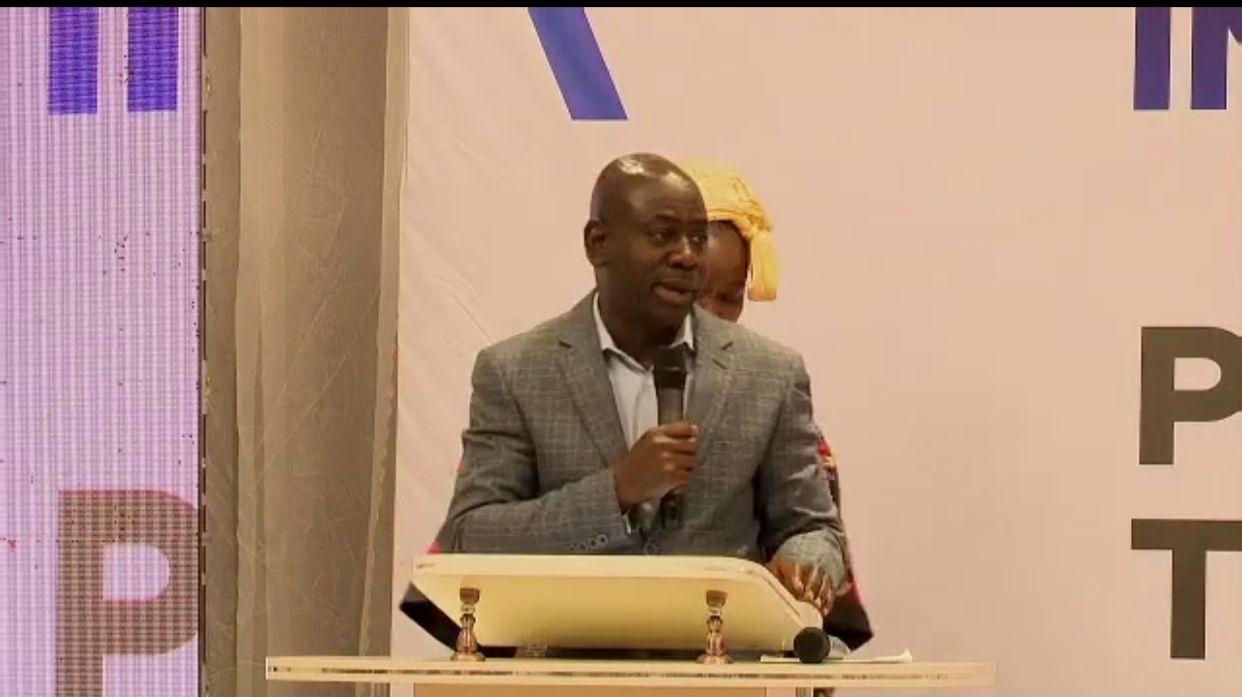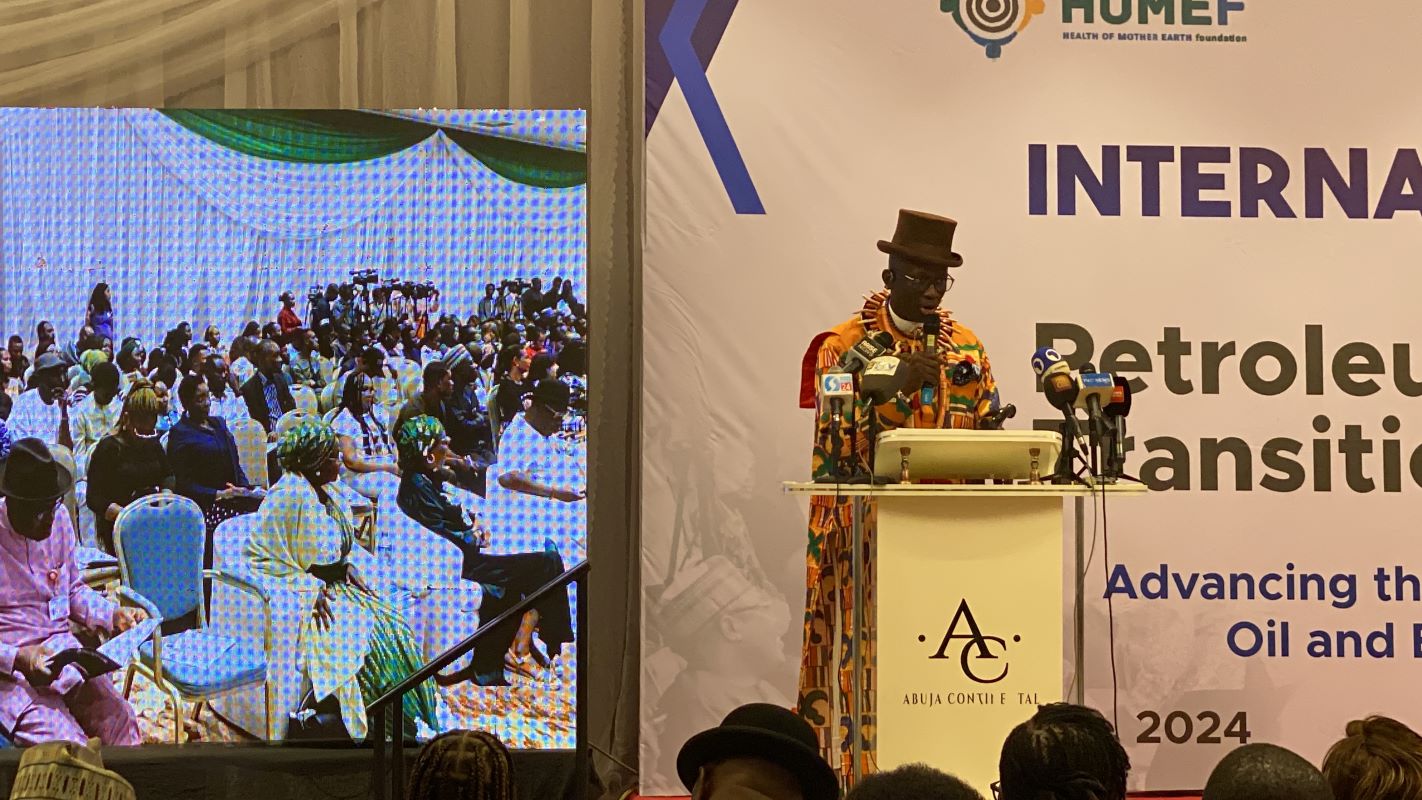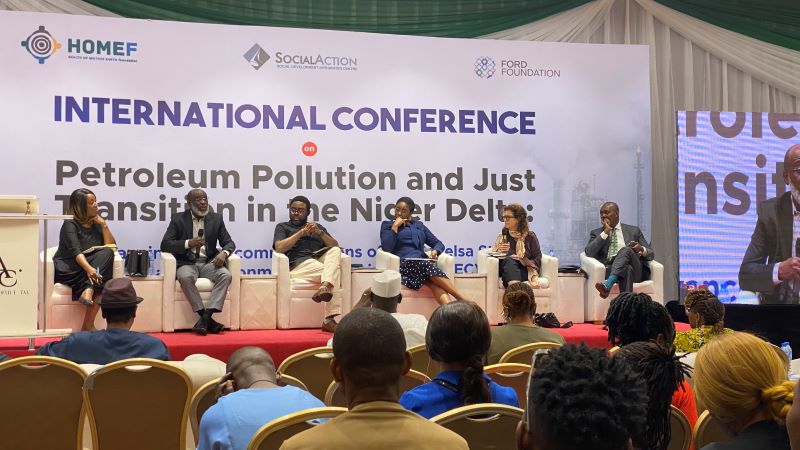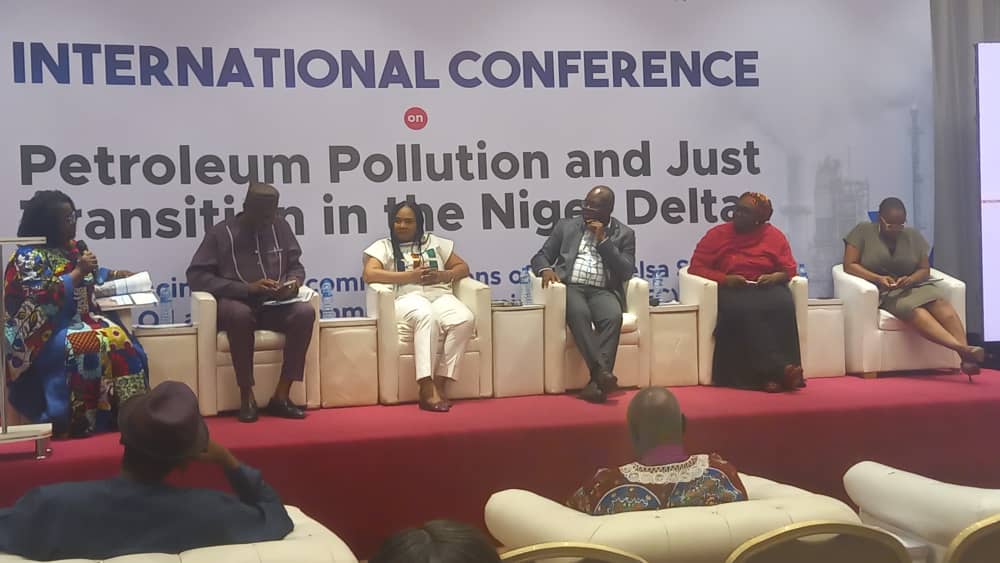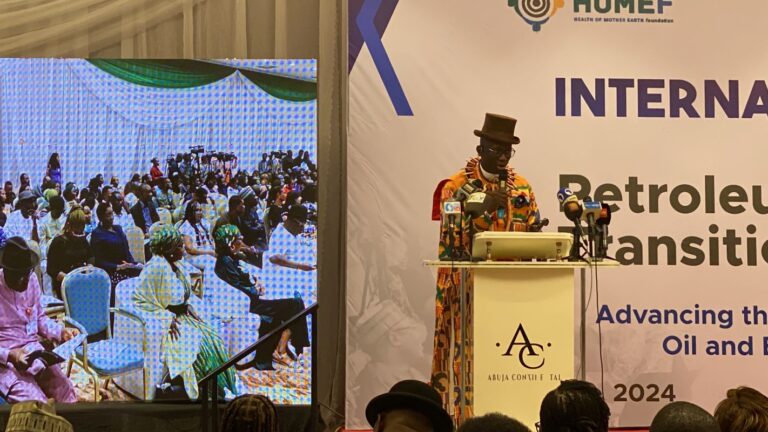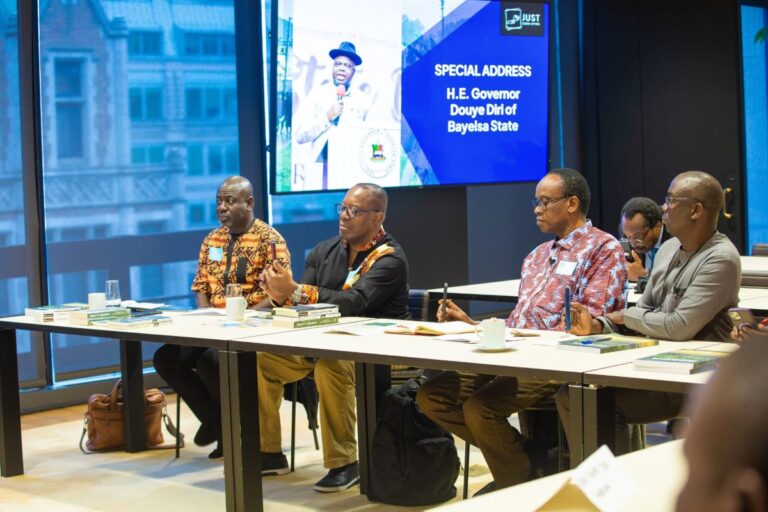$12 Billion Needed for Bayelsa Remediation, Say Experts at Historic Abuja Conference
Environmental Experts Recommend Urgent Remediation for Bayelsa at Niger Delta Conference
For decades, the Niger Delta, one of Nigeria’s most ecologically vibrant regions, has suffered the consequences of relentless oil extraction. From contaminated rivers to toxic soil, the environmental damage has been staggering. At the recent International Conference on Petroleum Pollution and Just Transition in the Niger Delta: Advancing the Recommendations of the Bayelsa State Oil and Environmental Commission held on October 30, 2024, in Abuja, stakeholders from across Nigeria and around the world gathered to address these issues head-on. The conference, organized by the Health of Mother Earth Foundation (HOMEF) and Social Action Nigeria with support from the Ford Foundation, outlined a path forward for the region and called for accountability from international oil companies (IOCs), the Nigerian government, and the global community.
Opening Ceremony and Keynote Addresses: A Shared Call for Justice and Action
The conference commenced with a welcome from Reverend Nnimmo Bassey, Director of HOMEF, who highlighted the enduring environmental injustices in the Niger Delta. “The Niger Delta’s ecological crisis is a scar on our conscience,” Bassey stated. He underscored the need for a sustainable approach, saying, “only a unified commitment can restore the health of these lands, rivers, and the communities that depend on them.”
The opening session featured a powerful video presentation illustrating the findings of the Bayelsa State Oil and Environmental Commission (BSOEC) report, titled An Environmental Genocide. The report highlights that over $12 billion is needed over the next 12 years to remediate the environmental damage in Bayelsa. The report’s grim statistics and visuals, depicting polluted rivers, barren lands, and ailing communities, set a clear message for the conference: action is urgent.
Lord John Sentamu, Chair of the BSOEC, formally presented the report, emphasizing the profound human, environmental, and economic losses the people of Bayelsa have endured. “Our report sheds light on the magnitude of suffering caused by decades of pollution,” Sentamu said. “It is time for the oil companies that have profited from this devastation to finally step up and take responsibility. We call upon Nigeria and the global community to support Bayelsa in its fight for justice and restoration.”
Special Remarks from Ford Foundation: A Commitment to Equity and Justice
Dr. ChiChi Aniagolu-Okoye, Regional Director of Ford Foundation West Africa, delivered special remarks, underscoring Ford’s commitment to supporting efforts for environmental justice. “This is not just an environmental issue; it is a matter of human rights,” she said, highlighting Ford Foundation’s dedication to promoting equity and justice. Aniagolu-Okoye emphasized the need for sustained partnerships and highlighted the importance of implementing the BSOEC’s recommendations.
Governor Douye Diri’s Address: A Plea for Accountability and Stronger Federal Support
In his keynote address, Governor Douye Diri of Bayelsa State painted a stark picture of the environmental degradation in Bayelsa, referring to the destruction of ecosystems, the contamination of rivers, and the daily impact on local communities. “Our rivers, once bountiful, now lie barren, and our land is poisoned,” he declared. Citing the BSOEC report, Diri noted that 40% of Bayelsa’s mangrove forests have been destroyed, and pollution and gas flaring caused over 16,000 neonatal deaths in 2012 alone.
Governor Diri also voiced frustration over the limitations imposed by the Land Use Act, which restricts state control over subsurface resources. “This law gives with one hand and takes with the other,” he lamented. Diri appealed to the federal government to reform the act and empower Bayelsa and other Niger Delta states to manage resources more effectively and safeguard their environments.
Federal Government’s Commitment to Combat Pollution
Representing President Bola Tinubu, Senator Heineken Lokpobiri, Minister of State for Petroleum Resources, was represented by Mr. Busari Kamoru, Director of Upstream in the ministry. Kamoru conveyed the federal government’s dedication to reducing pollution and fostering sustainable environmental practices. “We are committed to prioritizing the wellbeing of the Niger Delta over mere profit,” he said, emphasizing the need for long-term environmental protections that will prevent future degradation.
Senator Seriake Dickson, Chair of the Senate Committee on Ecology and Climate Change and immediate past governor of Bayelsa, spoke passionately on the need for urgent action. “For too long, our people have borne the brunt of oil pollution,” Dickson said. “It’s time to heal the land that has given so much to Nigeria’s economy.”
Minister of Environment, Mallam Balarabe Abbas Lawal, represented by Engr. Emeka Woke, Director General of NOSDRA, reinforced the Ministry’s commitment to environmental restoration projects. Woke pointed to the Hydrocarbons Pollution Remediation Project (HYPREP) as an example but acknowledged the need to scale up efforts. “From environmental destruction, we must transition to restoration,” he said, emphasizing that NOSDRA would continue to strengthen monitoring and regulatory frameworks.
The Voice of Traditional Communities: King Bubaraye Dakolo’s Address
King Bubaraye Dakolo, Chairman of the Bayelsa State Council of Traditional Rulers, delivered an emotional address on behalf of the communities directly impacted by oil pollution. “For generations, we have sustained ourselves through fishing and farming, and we have always shared a deep connection with our land,” he stated. “But today, our lands are uninhabitable, our rivers unsafe, and our heritage hangs by a thread.”
Dakolo called for urgent action and a halt to all onshore asset sales by IOCs until they fulfill their obligations for cleanup and compensation. “The oil industry has made billions from our resources while leaving us with poisoned soil and polluted water,” he said. “This is not just about environmental cleanup; it’s about justice and dignity for our people. The time for action is now.”
Panel Discussions: Strategies for Environmental Justice and a Just Transition
The conference featured two major panel discussions focusing on the BSOEC report’s recommendations, including corporate accountability, public health, and socio-economic recovery for the Niger Delta.
Panel 1: Environmental Remediation, Corporate Accountability, and Socio-Economic Recovery
Moderated by Professor Anna Zalik of York University, Canada, the first panel explored strategies for large-scale environmental remediation and corporate accountability. Panelists included Engr. Emeka Woke (NOSDRA), Engr. Gbenga Komolafe (NUPRC), Olanrewaju Suraju (HEDA Resource Centre), and Iniruo Wills (former Bayelsa Environment Commissioner), Tengi George-Ikoli (Natural Resource Governance Institute). They discussed the urgent need for advanced technology to improve the accuracy of joint investigation visits (JIVs) and called for increased regulatory oversight.
Suraju emphasized that IOCs should not be allowed to divest without first remediating affected lands. “Divestments must not become a loophole for evading responsibility,” he warned, calling for the federal government to enforce strict regulations to protect the Niger Delta.
Panel 2: Public Health, Socio-Economic Restoration, and the Just Energy Transition
Professor Engobo Emeseh, Head of the Law School at the University of Bradford, UK, chaired the second panel, where discussions focused on the urgent health and socio-economic impacts of pollution. Speakers included Emem Okon, Executive Director of the Kebetkache Women Development & Resource Centre, Dr. Patterson Ogon of the NDDC, Hauwa Mustapha, Executive Director of Tubali Development Initiative and Dr. Otive Igbuzor, Director of Centre LSD. Panelists agreed that immediate health screenings, improved healthcare infrastructure, and economic revitalization were critical steps for the Niger Delta’s recovery.
Dr. Ogon stressed that the Niger Delta must be part of the global shift toward renewable energy. “This region cannot be left behind in the energy transition,” he said, advocating for international climate financing to support clean energy development in the region.
Closing Remarks: Sustained Commitment and Hope for the Future
Onyinye Onyemobi of the Ford Foundation delivered closing remarks, expressing appreciation for the unity displayed at the conference. “Today’s discussions are a step forward, and we are here for the long haul,” she said. Onyemobi reinforced Ford Foundation’s pledge to support initiatives for justice and equity, calling on all stakeholders to act urgently to implement the BSOEC report’s recommendations.
Dr. Isaac Osuoka of Social Action International also addressed the gathering, emphasizing that the conference was not just an event but a movement for lasting change. Osuoka said. “We have heard pledges; now we need action. We will hold all stakeholders accountable and ensure that the BSOEC report’s roadmap is followed.”
Conclusion: A Defining Moment in Nigeria’s Environmental Justice Movement
The International Conference on Petroleum Pollution and Just Transition underscored the severity of the Niger Delta’s environmental crisis. The $12 billion remediation cost, as recommended by the BSOEC report, is a testament to the vast scale of restoration required. Yet, the conference was a powerful reminder that the Niger Delta’s suffering is not in vain. With new commitments from government officials, support from civil society, and global attention, there is hope that the region can finally begin its journey to recovery.
As Dr. Osuoka concluded, “This is not just a call to action for Bayelsa or the Niger Delta; it is a call for justice on a national and global scale. The world is watching, and the people of the Niger Delta deserve nothing less than our full commitment.”
This conference report, with its detailed documentation of the challenges and calls to action, serves as a rallying cry for stakeholders across Nigeria and beyond to transform words into deeds for the Niger Delta’s future.

